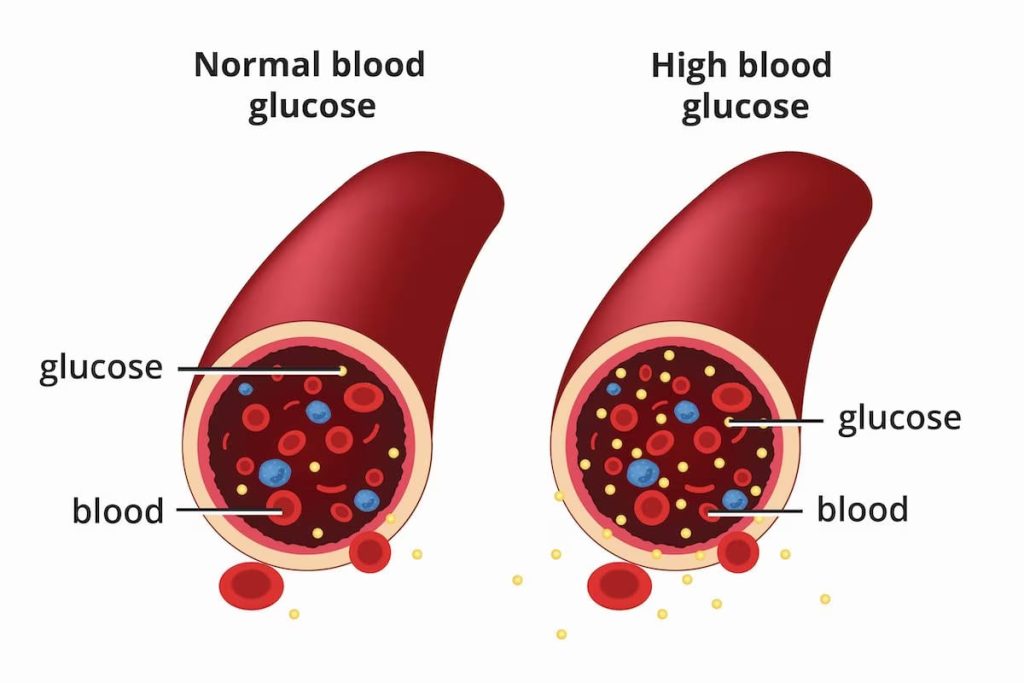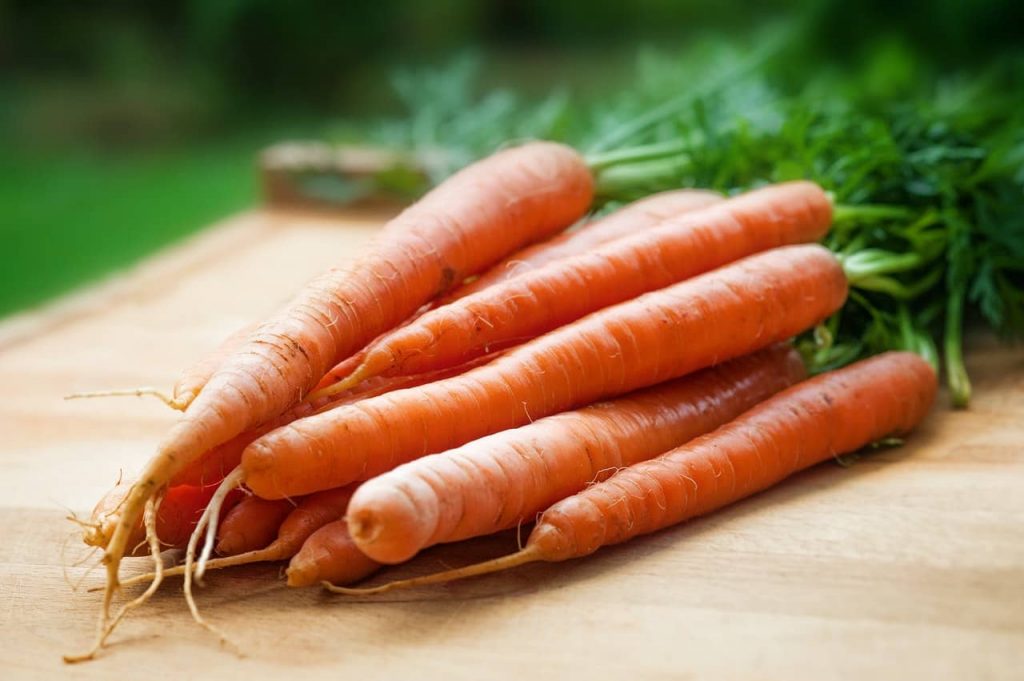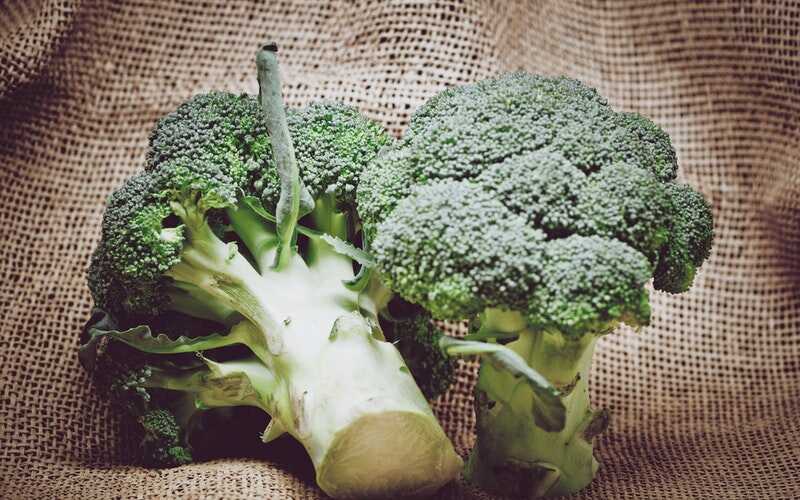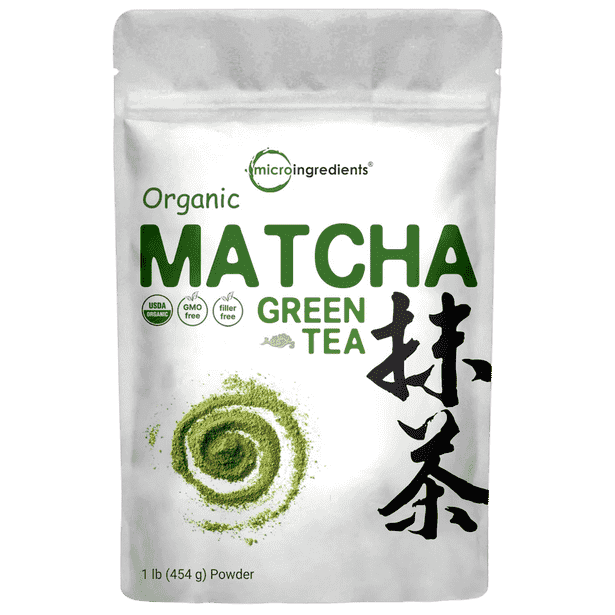36 Best Foods for Diabetes: What To Eat & What to Avoid

Are you looking for the best foods for diabetes to incorporate into your diet if you have diabetes? According to experts and registered dieticians, there are many options that can help you manage your blood sugar levels and improve overall health.
In this article, we’ll explore the top 36 foods that are recommended for diabetics.
When it comes to managing diabetes, diet plays a crucial role. Choosing the right foods can help regulate blood sugar levels, reduce inflammation, and improve heart health. Experts recommend a diet that is rich in whole, nutrient-dense foods such as fruits, vegetables, whole grains, lean protein, and healthy fats.
If you’re wondering which specific foods are best for diabetics, you’re in luck. We’ve compiled a list of 36 foods that are backed by science and recommended by experts. From leafy greens and berries to nuts and legumes, these foods are not only delicious but can also help you manage your diabetes and improve overall health.
Understanding Diabetes: What is Diabetes
Diabetes is a chronic disease that affects how your body processes blood sugar (glucose). Glucose is an essential source of energy for your body, but too much of it in your bloodstream can lead to serious health problems.

There are two main types of diabetes: type 1 and type 2.
Type 1 diabetes is an autoimmune disease where the body’s immune system attacks and destroys the cells in the pancreas that produce insulin. Insulin is a hormone that helps your body use glucose for energy. Without insulin, glucose builds up in your bloodstream, leading to high blood sugar levels.
Type 2 diabetes is the most common type of diabetes, accounting for 90-95% of all cases. In type 2 diabetes, your body doesn’t use insulin properly, a condition called insulin resistance. Over time, your pancreas may not be able to produce enough insulin to keep up with your body’s demand, leading to high blood sugar levels.
Risk factors for type 2 diabetes include being overweight or obese, having a family history of diabetes, being physically inactive, and having prediabetes (higher than normal blood sugar levels).
Managing diabetes involves maintaining healthy blood sugar levels through a combination of lifestyle changes and medication. A healthy diet is an essential part of diabetes management. Eating a diet that is low in sugar, saturated fats, and processed foods, and high in fiber, whole grains, fruits, and vegetables can help you manage your blood sugar levels and prevent complications from diabetes.
Consulting with a registered dietitian or certified diabetes educator can be helpful in developing a personalized diabetes diet plan that meets your individual needs and preferences.
36 Best Foods for Diabetes
If you have diabetes, you know that managing your diet is crucial to maintaining your health. Choosing the right foods can help keep your blood sugar levels stable and prevent complications.
Here are 36 of the best foods for diabetics, according to experts.
| # | Food Name | Benefits for Diabetics |
|---|---|---|
| 1 | Sardines | Omega-3s for heart health, low in carbs. |
| 2 | Leafy Greens | Nutrient-rich, low-carb, and fiber for control. |
| 3 | Salmon | Omega-3s, protein, low-carb, and vitamin D. |
| 4 | Garlic | Lowers blood sugar levels and adds flavor. |
| 5 | Sweet Potato | Fiber, vitamin A, and low glycemic index. |
| 6 | Avocados | Healthy fats, low-carb, and high fiber. |
| 7 | Apple Cider Vinegar | Improves insulin sensitivity and blood sugar. |
| 8 | Oats | Fiber-rich and magnesium for better control. |
| 9 | Quinoa | Protein, fiber, and a tasty low-GI alternative. |
| 10 | Chia Seeds | Fiber and healthy fats to regulate blood sugar. |
| 11 | Edamame | Protein, fiber, and low in carbs. |
| 12 | Eggs | Protein and blood sugar regulation. |
| 13 | Beans | High fiber and protein, low glycemic index. |
| 14 | Tuna | Protein, omega-3s, and low carbs. |
| 15 | Lentils | Fiber, protein, and low glycemic index. |
| 16 | Lean Chicken | Protein for blood sugar control, low in fat. |
| 17 | Bell Peppers | Vitamin C, low-carb, and versatile in dishes. |
| 18 | Extra-virgin Olive Oil | Healthy fats for cholesterol and flavor. |
| 19 | Red Onion | Antioxidants and improved insulin sensitivity. |
| 20 | Zucchini | Low carb, high fiber, and versatile in cooking. |
| 21 | Asparagus | Fiber-rich, low-carb, and great in various dishes. |
| 22 | Strawberries | Low GI, high fiber, and delicious addition. |
| 23 | Carrots | Fiber, vitamin A, and low glycemic index. |
| 24 | Berries | Low GI, fiber-rich, and great for variety. |
| 25 | Bok Choy | Low carb, high fiber, and versatile in stir-fries. |
| 26 | Goat/Sheep Yogurt | Protein, blood sugar regulation, lower lactose. |
| 27 | Bone Broth | Nutrient-rich and supports overall health. |
| 28 | Citrus Fruit | Vitamin C, fiber, and antioxidants. |
| 29 | Tomatoes | Low carb, high in vitamins, and versatile. |
| 30 | Mackerel | Omega-3s, protein, low carb, and vitamin D. |
| 31 | Almonds | Healthy fats, protein, and low in carbs. |
| 32 | Walnuts | Omega-3s, protein, and low carb for heart health. |
| 33 | Broccoli | Fiber-rich, vitamins, and low in carbohydrates. |
| 34 | Buckwheat | Fiber, protein, and low on the glycemic index. |
| 35 | Flaxseeds | Fiber, healthy fats, and blood sugar regulation. |
| 36 | Mushrooms | Low carb, vitamins, and versatile in cooking. |
1. Sardines
Sardines are a nutritional powerhouse for diabetics due to their high omega-3 fatty acid content. Omega-3s aid in reducing inflammation, promoting heart health, and mitigating the risk of diabetic complications. Additionally, sardines offer a protein source with minimal carbohydrates, making them an excellent choice for blood sugar management.
2. Leafy Greens
Leafy greens like spinach, kale, and collard greens are diabetes-friendly superfoods. They are rich in essential nutrients while being low in carbohydrates. Their high fiber content helps regulate blood sugar levels, and they provide a broad spectrum of vitamins and minerals that support overall health.
3. Salmon
Salmon’s abundance of omega-3 fatty acids, combined with substantial protein and vitamin D, makes it a standout choice for diabetics. Omega-3s aid in inflammation reduction, cardiovascular health, and insulin sensitivity improvement. Its low carbohydrate content further complements diabetes management.
4. Garlic

Beyond its culinary appeal, garlic boasts benefits for diabetics. It has been demonstrated to lower blood sugar levels, contributing to improved glycemic control. Incorporating garlic into dishes not only enhances flavor but also supports diabetes management.
5. Sweet Potato
Sweet potatoes offer a favorable alternative to regular potatoes for diabetics. They are rich in fiber and vitamin A, and their lower glycemic index prevents drastic blood sugar spikes, promoting stable glucose levels. At this point you may want to check our Potato Vs Sweet Potato article we published a while ago.
6. Avocados
Avocados are a diabetes-friendly source of healthy fats that enhance cholesterol profiles and alleviate inflammation. Their low carbohydrate content and high fiber make them a satiating addition to diabetic diets.
7. Apple Cider Vinegar
Apple cider vinegar has garnered attention for its potential to improve insulin sensitivity and reduce blood sugar levels. It can be used in dressings or consumed prior meals to prevent blood sugar spikes. [1]
8. Oats
Oats are a superb source of fiber and magnesium, both of which play pivotal roles in regulating blood sugar levels. They are a filling, heart-healthy option for diabetics.
9. Quinoa
Quinoa is a diabetes-friendly grain due to its impressive combination of protein and fiber. This dynamic duo promotes satiety and helps manage blood sugar levels by preventing rapid spikes and crashes.
With a low glycemic index, quinoa provides a sustained release of energy without causing abrupt fluctuations in glucose, making it a valuable addition to diabetic diets.
10. Chia Seeds
Chia seeds offer a multi-faceted approach to blood sugar management for individuals with diabetes. Their high fiber content aids in slowing the absorption of carbohydrates, preventing sudden blood sugar spikes.
Furthermore, chia seeds contain healthy fats that contribute to a feeling of fullness and provide a steady source of energy. The protein content supports muscle health and overall vitality.
11. Edamame
Edamame, young soybeans, align well with diabetic dietary guidelines. Their protein and fiber content make them a filling, low-carbohydrate snack that doesn’t disrupt blood sugar balance.
Edamame’s nutritional profile also includes essential vitamins and minerals, making it a wholesome choice for diabetes management.
12. Eggs

Eggs are a nutritional powerhouse, particularly beneficial for those with diabetes. Their high-quality protein assists in stabilizing blood sugar levels by moderating the release of glucose.
Eggs also offer vitamin D, which contributes to bone health and overall well-being. Their versatility in cooking makes them a convenient and nutritious choice for various meals.
13. Beans
Beans, whether black beans, kidney beans, or chickpeas, are rich in both fiber and protein. This combination enhances satiety, curbing the desire for high-carb snacks.
Their low glycemic index ensures that they release glucose gradually, maintaining steady blood sugar levels. Beans also contribute to heart health by helping to lower cholesterol levels.
14. Tuna
Tuna provides a trifecta of benefits for diabetics. It serves as a low-carb protein source that can satisfy hunger while promoting muscle health.
Additionally, tuna is rich in omega-3 fatty acids, which support heart health and reduce inflammation, a common concern in diabetes. Its versatility in recipes allows for the incorporation of heart-healthy ingredients without compromising blood sugar control.
☝️ You may want to check how tuna compared to sardines. (Opens in a new tab).
15. Lentils
Lentils are a fiber-rich and protein-packed legume that aligns perfectly with diabetes management. Their high fiber content contributes to a sense of fullness, preventing overeating and blood sugar spikes.
Being low on the glycemic index, lentils release glucose gradually, providing sustained energy. They are a versatile addition to soups, stews, and side dishes, enhancing both nutrition and flavor.
16. Lean Chicken
Lean chicken is an excellent source of high-quality protein, making it an essential component of a diabetes-friendly diet. Protein assists in regulating blood sugar levels by promoting satiety and reducing cravings for sugary or high-carb foods.
Its low-fat content aligns with heart health recommendations, offering a balanced and nutritious choice for various culinary creations.
☝️ Related: Beef vs Pork vs Chicken: Which meat is best
17. Bell Peppers
Bell peppers bring a burst of color, flavor, and nutrients to diabetic diets. They are particularly rich in vitamin C, an antioxidant that supports immune health and may aid in wound healing, which can be crucial for individuals with diabetes.
With their low carbohydrate content, bell peppers add depth and vibrancy to a range of dishes without causing abrupt blood sugar fluctuations.
18. Extra-virgin Olive Oil

Extra-virgin olive oil is a valuable source of monounsaturated fats, known for their heart-healthy benefits. For diabetics, it offers a way to improve cholesterol profiles and reduce the risk of cardiovascular complications.
Additionally, olive oil’s use in cooking and salad dressings elevates the taste of meals while providing a source of healthy fats, promoting both flavor and nutritional value.
19. Red Onion
Red onions are a flavorful and diabetes-friendly addition to meals. They are rich in antioxidants, particularly quercetin, which has been linked to improved insulin sensitivity. [2]
These antioxidants help reduce oxidative stress and inflammation, common concerns for individuals with diabetes. The enticing taste of red onions enhances the appeal of various dishes, making them a valuable choice for those managing diabetes while enjoying delicious meals.
20. Zucchini
Zucchini’s low carbohydrate content, combined with its fiber and nutrient density, positions it as an excellent option for diabetic meal planning.
Its fiber content aids in stabilizing blood sugar levels and promotes a feeling of fullness.
Additionally, zucchini’s versatility allows for its inclusion in stir-fries, salads, and other recipes, enhancing both nutrition and flavor without causing spikes in glucose levels.
21. Asparagus
Asparagus is a fiber-rich vegetable with minimal carbohydrates, making it suitable for individuals seeking to maintain blood sugar control. Its high fiber content supports digestive health and satiety while preventing rapid fluctuations in glucose levels.
Asparagus can be incorporated into a variety of dishes, adding a fresh and nutritious element to diabetic meal plans.
I personally suggest to harvest wild asparagus yourself or buy from people who harvest wild asparagus on their own for better strength and taste.
22. Strawberries
Strawberries stand out as a diabetic-friendly fruit due to their low glycemic index and high fiber content. This combination ensures that they release glucose gradually, preventing blood sugar spikes.
Additionally, strawberries are rich in antioxidants and vitamins, contributing to overall health. Their delightful, sweet-tangy flavor makes them an appealing and guilt-free addition to numerous recipes and snacks.
23. Carrots

Carrots are a fiber-rich source of vitamin A with a low glycemic index, making them a valuable asset in diabetic meal plans.
The fiber content supports digestive health and helps maintain steady blood sugar levels. Carrots’ versatility in cooking, whether raw, roasted, or steamed, provides options for incorporating them into a variety of dishes, enhancing both nutrition and flavor.
24. Berries
Berries, including blueberries, raspberries, and blackberries, are prized by those with diabetes for their low glycemic index and robust fiber content.
These qualities ensure gradual glucose release, aiding in blood sugar control. Berries are also packed with antioxidants, vitamins, and minerals, offering both a delightful taste and numerous health benefits.
Their versatility allows for inclusion in breakfasts, desserts, or as a healthy snack.
☝️ By the way, if you want to learn how to grow your own blueberries, click the link.
25. Bok Choy
Bok choy is a low-carbohydrate vegetable with a wealth of fiber and nutrients, making it an excellent choice for those managing diabetes. Its high fiber content supports digestive health and helps control blood sugar levels.
Bok choy’s crisp texture and mild flavor make it particularly suitable for stir-fries and Asian-inspired recipes, offering a nutrient-dense and satisfying addition to meals.
26. Goat or Sheep Yogurt
Goat or sheep yogurt is a valuable dairy alternative for individuals with diabetes. It provides protein while being lower in lactose compared to cow’s milk yogurt, making it gentler on the digestive system.
The protein content aids in blood sugar regulation and supports muscle health.
Additionally, yogurt contains probiotics that promote gut health and digestive well-being, important factors for overall health in those managing diabetes.
27. Bone Broth
Bone broth, rich in protein and nutrients, offers a comforting and nutritious option for individuals with diabetes. Its protein content supports muscle health and can help manage blood sugar levels by promoting satiety.
The nutrient density of bone broth provides essential vitamins and minerals, contributing to overall well-being.
Enjoyed as a warm and soothing beverage or incorporated into recipes, bone broth is a versatile and healthful choice.
28. Citrus Fruit
Citrus fruits, such as oranges, grapefruits, and lemons, are celebrated for their vitamin C content, which supports immune health, particularly important for those with diabetes.
The fiber in citrus fruits aids in digestive regularity and helps control blood sugar levels by preventing rapid glucose spikes.
The presence of antioxidants in citrus fruits contributes to overall health and well-being, making them a nutritious and flavorful addition to meals and snacks.
29. Tomatoes

Tomatoes are a versatile and diabetes-friendly choice due to their low carbohydrate content and nutrient richness. They offer an array of vitamins, especially vitamin C, and minerals like potassium, benefiting overall health.
Tomatoes’ culinary adaptability allows for inclusion in salads, sauces, and a variety of dishes without causing undue fluctuations in blood sugar levels.
30. Mackerel
Mackerel is a diabetes-friendly fish that offers a triple threat of benefits. Firstly, it’s abundant in omega-3 fatty acids, which are renowned for their ability to reduce inflammation and improve heart health, crucial for individuals with diabetes.
Secondly, mackerel provides high-quality protein, supporting muscle health and providing lasting energy. Lastly, it contains vitamin D, which plays a role in maintaining bone health and overall well-being.
With its low carbohydrate content, mackerel is an excellent choice for blood sugar regulation and cardiovascular support.
31. Almonds
Almonds are a nutritional powerhouse for individuals with diabetes. Their heart-healthy fats contribute to satiety, reducing the risk of overeating and blood sugar spikes.
Almonds are also rich in both protein and fiber, offering sustained energy and helping to manage blood sugar levels effectively. As a convenient and versatile snack, they make a perfect addition to diabetic meal plans.
32. Walnuts
Walnuts stand out as a heart-healthy nut, offering numerous benefits for diabetes management. They are an exceptional source of omega-3 fatty acids, which are renowned for their anti-inflammatory properties and their positive impact on heart health.
Walnuts also provide protein and fiber, aiding in blood sugar control and promoting a sense of fullness. Incorporating walnuts into one’s diet can contribute to overall well-being while supporting blood sugar stability.
33. Broccoli

Broccoli is a dietary gem for individuals with diabetes. Its rich fiber content supports digestive health and helps maintain stable blood sugar levels by preventing rapid spikes.
Additionally, broccoli is packed with essential vitamins, notably vitamin C, and minerals that contribute to overall health. Being low in carbohydrates, it’s a wise choice for those seeking to keep blood sugar in check while enjoying a nutrient-dense vegetable.
☝️ Related: Broccoli Sprouts Vs Mature Broccoli: Why are Broccoli Sprouts Healthier Than Mature Broccoli?
34. Buckwheat
Buckwheat is an underrated grain that offers multiple advantages for diabetes management. Its high fiber content promotes satiety and helps control blood sugar levels by slowing down carbohydrate absorption.
Furthermore, buckwheat is a source of quality protein and provides a low glycemic index, ensuring a gradual release of glucose. Including buckwheat in one’s diet supports stable blood sugar and overall nutritional balance.
35. Flaxseeds
Flaxseeds are a diabetes-friendly superfood packed with benefits. They are an excellent source of dietary fiber, which aids in blood sugar regulation by preventing rapid glucose spikes.
Flaxseeds also provide healthy fats, particularly omega-3s, which are known for their anti-inflammatory and heart-healthy properties.
Additionally, these tiny seeds offer a host of essential nutrients, including vitamins and minerals. Incorporating flaxseeds into meals can support blood sugar control and overall well-being.
36. Mushrooms
Mushrooms are a versatile and nutrient-rich addition to diabetic meal planning. They are low in carbohydrates, ensuring minimal impact on blood sugar levels.
Despite their low calorie content, mushrooms are packed with essential vitamins and minerals, including vitamin D, which is crucial for bone health and overall wellness.
Their adaptability in various recipes allows individuals with diabetes to enjoy a wide array of flavors while benefiting from their nutritional value.
Organic Matcha Green Tea Powder, 1 Pound
- Micro Ingredients Organic Matcha Tea Powder, Pure Matcha Powder Green Tea, 1 Pound, Culinary Grade and Authentic Japanese Origin.
- Best Superfood – Matcha is Rich in Antioxidants and is a Great Source of Natural Energy and Mental Clarity.
- Rich in Caffeine, Gradually Aids with Digestion, Healing, Cleansing and Contains Natural L-Theanine, Provides Good, Clean Energy.
⭐⭐⭐⭐⭐ | 4.8 (165 reviews)
Foods To Avoid
When you have diabetes, it’s important to be mindful of what you eat. Certain foods can cause your blood sugar levels to spike, which can lead to complications.
Here are some foods that you should avoid:
1. Chips (Potato Chips and Fried Snacks)
Potato chips and other fried snacks are problematic for diabetes management for several reasons.
- Firstly, they are high in unhealthy fats, often saturated and trans fats, which can contribute to heart disease, a common complication of diabetes.
- Secondly, these snacks are calorie-dense, leading to potential weight gain when consumed in excess.
- Additionally, they are typically loaded with salt, contributing to high blood pressure, another risk factor for diabetes-related complications.
The combination of unhealthy fats, excess calories, and high sodium content makes chips detrimental to both blood sugar control and overall health.
2. Candy
Candy is notorious for being packed with sugar, primarily simple sugars and high-fructose corn syrup, which can cause rapid and dramatic spikes in blood sugar levels.
For individuals with diabetes, these sugar surges can lead to energy crashes and disrupt the delicate balance of blood glucose regulation.
Additionally, excessive sugar intake can contribute to weight gain and increase the risk of heart disease, both of which are concerns for those with diabetes.
3. Bread and Refined Pasta
Bread and refined pasta are high in refined carbohydrates, causing rapid spikes in blood sugar levels when consumed. The refining process removes much of their fiber and nutrients, resulting in a lack of satiety and nutritional value.
Opting for whole-grain pasta provides more fiber, slowing down glucose absorption, but portion control is crucial.
4. White Rice
White rice is another refined carbohydrate that lacks fiber and nutrients. This leads to quick increases in blood sugar levels after consumption.
Brown rice, on the other hand, is a healthier alternative, as it retains its fiber and nutrients, promoting better blood sugar control and sustained energy.
5. French Fries
French fries are problematic for diabetes management due to their high-fat content and starchy nature.
The deep-frying process adds extra calories, while the salt can contribute to high blood pressure, a common concern for individuals with diabetes.
Healthier alternatives like roasted sweet potato wedges or baked potato chips are preferable options to avoid excessive fat and sodium intake.
6. Cereals
Many breakfast cereals, especially those marketed as “healthy,” often contain substantial amounts of added sugars.
These sugars can cause rapid spikes in blood sugar levels, leading to energy crashes and cravings later in the day. Choosing cereals high in fiber and low in sugar is essential for maintaining stable blood sugar levels.
7. Sugary Drinks (Energy Drinks, Sodas)
Sugary drinks like energy drinks and sodas are packed with added sugars that can significantly elevate blood sugar levels.
Regular consumption can lead to weight gain and increase the risk of developing type 2 diabetes. Opting for water or unsweetened tea is a smarter choice to avoid the harmful effects of excessive sugar intake.
8. Processed Meats
Processed meats such as hot dogs and sausages are high in saturated fats and sodium. They may also contain hidden sugars in their ingredients.
These factors can contribute to cardiovascular issues and high blood pressure, often co-occurring with diabetes. Choosing lean meats like chicken or turkey is a healthier option that reduces these risks.
9. Fruit Juices
Fruit juices, while seemingly healthy, are concentrated sources of sugar. They lack the fiber found in whole fruits, which helps slow the absorption of sugar.
As a result, fruit juices can lead to rapid blood sugar spikes. Whole fruits, on the other hand, provide fiber, vitamins, and minerals, making them a better choice for managing blood sugar levels.
10. Alcohol
Alcohol can cause blood sugar levels to drop dangerously low, especially when consumed on an empty stomach. It can also impair judgment, making it more challenging to manage dietary choices.
For individuals with diabetes, moderation and always consuming alcohol with food are essential to prevent hypoglycemia (low blood sugar).
Sample Grocery List

If you’re looking to create a grocery list that caters to your diabetes-friendly diet, there are plenty of options to choose from.
Here are some of the best foods for diabetics that you can add to your grocery list:
Fruits and Vegetables
- Berries (strawberries, blueberries, raspberries)
- Apples
- Oranges
- Grapefruit
- Peaches
- Plums
- Pears
- Tomatoes
- Leafy greens (spinach, kale, collard greens)
- Broccoli
- Carrots
- Bell peppers
Protein-Rich Foods
- Chicken breast
- Turkey breast
- Fish (salmon, tuna, cod)
- Shellfish (shrimp, crab, lobster)
- Tofu
- Eggs
- Greek yogurt
- Cottage cheese
- Nuts (almonds, walnuts, cashews)
- Seeds (chia seeds, flaxseeds)
Whole Grains
- Brown rice
- Quinoa
- Whole wheat bread
- Whole wheat pasta
- Oats
Dairy and Dairy Alternatives
- Almond milk
- Soy milk
- Low-fat cheese
- Low-fat yogurt
Snacks and Condiments
- Hummus
- Guacamole
- Salsa
- Raw veggies (carrots, celery, cucumbers)
- Whole grain crackers
- Popcorn (air-popped)
- Dark chocolate (70% cocoa or higher)
By incorporating these foods into your grocery list, you can create a healthy and balanced diet that helps manage your diabetes.
Sample Menu
Planning your meals is an essential part of managing diabetes. A healthy meal plan should include a variety of foods that are rich in nutrients and low in fat and calories.
Here is a sample menu for a day that includes some of the best foods for diabetics:
Breakfast
- Two slices of whole-grain toast with avocado and a poached egg
- A cup of mixed berries
- A cup of unsweetened almond milk
Snack
- A small apple with a tablespoon of almond butter
Lunch
- Grilled chicken breast with a side of roasted vegetables
- A small sweet potato
- A cup of mixed greens with balsamic vinaigrette dressing
Snack
- A serving of plain Greek yogurt with a handful of mixed nuts
Dinner
- Baked salmon with lemon and herbs
- A cup of quinoa with mixed vegetables
- A cup of steamed broccoli
Snack
- A cup of sliced cucumbers with hummus
Remember to always consult with your healthcare provider or a registered dietitian before making any significant changes to your diet. They can help you create a personalized meal plan that meets your specific needs and preferences.
Conclusion
In conclusion, managing diabetes requires a balanced and healthy diet that is rich in nutrients and low in fat and calories. Incorporating a variety of foods that are high in fiber, protein, and healthy fats can help regulate blood sugar levels and improve overall health.
Incorporating these foods into your diet can help manage diabetes and improve overall health. Remember to always consult with a healthcare professional before making any significant changes to your diet.
Dr. Berg’s Electrolyte Powder Formula
Dr. Berg’s Electrolyte Powder replenishes electrolytes and relieves muscular cramps. Dissolves easily and is ideal for promoting endurance, hydration, normal muscle function and energy. It’s also keto-friendly! Each dose includes 1000mg of potassium and absolutely no sugar, carbs, maltodextrin, or artificial additives.
Related Posts
ℹ️ FoodNurish is reader-supported. When you buy through links on our site, we may earn an affiliate commission without any surcharge to you.


